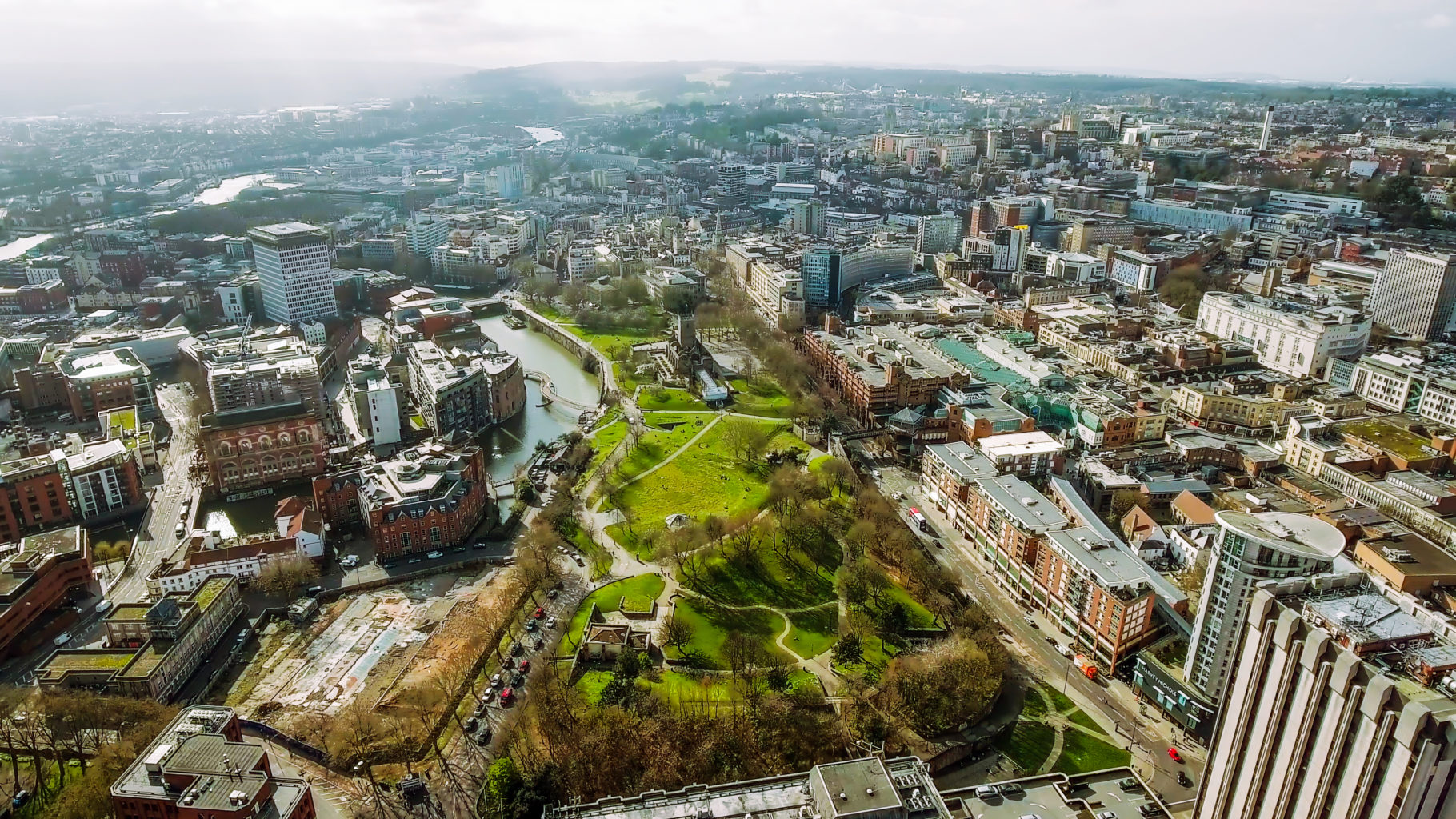Last week the government announced significant changes to the Town and Country Planning (Use Classes) Order, which could radically alter the appearance of towns and cities across the country.
The Town and Country Planning (Use Classes) (Amendment) (England) Regulations 2020 proposes the amalgamation of a number of existing use classes into new wider use classes.
Our handy one-page guide outlines the changes to the use classes order in England.
This is significant because, in accordance with the Town and Country Planning Act 1990, planning permission is only required for a “material change of use” and as such, changes of use which fall within the same overarching use class will be permitted without the need for an express grant of planning permission.
What this will mean is that local planning authorities will not be able to control the changing nature of commercial buildings, with owners and occupiers having far greater flexibility in what they choose to do with their units.
Read our blog on how redundant commercial buildings can be repurposed into new homes without planning permission.
The broader categories will also potentially allow for greater subdivision of premises, with different users occupying the same space all operating under the umbrella of an overarching use class.
Current Use Classes
| Use Class | Description | Permitted Change |
|---|---|---|
| Class E – Commercial, business and service | Use, or part use, for various purposes including display or retail sale of goods, sale of food and drink, provision of services, indoor sport or fitness, medical or health services, and more. | – Class E to Class C3 (subject to total floorspace of the existing building being no greater than 1,500sqm)* – Class E to use as a state-funded school falling within Class F.1(a) and back to previous lawful use* |
| Class F.1 – Learning and non-residential institutions | Any use not including residential use, such as provision of education, display of works of art, museums, public libraries, public halls, worship places, and law courts. | None currently applicable. |
| Class F.2 – Local community | Use as a shop selling essential goods, a hall or meeting place for the local community, an area or place for outdoor sport or recreation, or indoor/outdoor swimming pools or skating rinks. | None currently applicable. |
| Class B2 – General industrial | Use for industrial processes other than those in Class E. | – Permitted change to former Class B1* – Permitted change to Class B8 – Permitted change to Class B8 is subject to total floorspace being no greater than 500sqm in the building – Temporary permitted change (2 years) to a state-funded school |
| Class B8 – Storage or distribution | Use for storage or as a distribution centre. | – Permitted change to former Class B1* – Temporary permitted change (2 years) to a state-funded school |
| Class C1 – Hotels | Use as a hotel or boarding/guest house without significant care provision. | – Permitted change to a state-funded school and back to previous lawful use^ |
| Class C2 – Residential institutions | Use for residential accommodation and care, hospitals, nursing homes, residential schools, colleges, and training centers. | – Permitted change to a state-funded school or nursery and back to previous lawful use^ |
| Class C2A – Secure residential institutions | Use for secure residential accommodation, including prisons, young offenders institutions, detention centers, secure training centers, custody centers, short-term holding centers, secure hospitals, secure local authority accommodation, or military barracks. | – Permitted change to a state-funded school or nursery and back to previous lawful use^ |
| Class C3 – Dwellinghouses | Use as a dwellinghouse for single persons, families, or groups, with various conditions. | – Permitted change to Class C4 |
| Class C4 – House in multiple occupation | Use of a dwellinghouse by not more than six residents as an HMO. | – Permitted change to Class C3 |
| Sui generis – No class specified | Various uses including theaters, amusement arcades, hostels, waste disposal, retail warehouse clubs, nightclubs, casinos, betting offices, pay day loan shops, etc. | – Amusement centre or casino to Class C3 (subject to total floorspace being no greater than 150sqm)* – Casino, betting office, pay day loan shop, or hot food takeaway to commercial, business, and service (use class E). – Betting office, pay day loan shop, or laundrette to former Class B1(a) (subject to total floorspace being no greater than 500sqm)* – Betting office, pay day loan shop, or laundrette to Class C3 (subject to total floorspace being no greater than 150sqm)* – Mix of uses comprising of Class E or betting office or pay day loan shop and up to two flats (Class C3) (if display window at ground floor level). – Temporary permitted change (3 years) to former Classes A1, A2, A3, B1, public library, exhibition hall, museum, clinic, or health centre |
Note: * Indicates specific conditions or limitations mentioned in the example. ^ Indicates a permitted change subject to specific conditions.
What are the changes?
The changes, which come in to force on 1 September 2020, will create two new uses classes:
- Class E – commercial, business and service; and
- Class F.1 (learning and non-residential institutions); and
- Class F.2 (local community).
It also moves some uses that were previously covered by the use classes order (and which benefitted from certain permitted changes) into the list of uses which cannot be included in a specified class.
Class E will comprise the previous shops (A1), financial and professional services (A2), restaurants and cafes (A3) and offices (B1), together with uses such as gyms, nurseries and health centres (D1 and D2).
The new Learning and non-residential institutions class (F1) will include former D1 uses, which are more likely to involve buildings in wider public use such as school, libraries and art galleries.
Local community uses (Class F2) will include former D2 uses, which provide for group activities of a physical nature such as swimming pools, skating rinks and areas for outdoor sports. It also includes smaller shops serving local communities.
Residential uses (Class C), general industrial (B2) and storage and distribution (B8) remain unchanged
The previous separate categories for drinking establishments (A4) and hot food takeaways (A5) are removed, and those uses will thereafter be classified as sui generis. The same will also apply to cinemas, concert, dance and bingo halls (which were previously within class D2).
Transitional arrangements
As of 1 September, there will be some transitional arrangements in place to allow for the use of historic permitted changes, however, these will only be in place until 31 July 2021. The same is true of relevant Article 4 directions.
Take action now:
Our handy one-page guide sets out the planned changes to the use of classes from 1 September 2020. If you are looking at taking on, or converting, a building you should double check the new regulations, as it may be that the new proposals make it easier (or in some cases harder) to change the existing use. Equally, when considering letting properties, landlords will want to have regard to the types of uses they are willing to accept in their buildings.
Contact us
For advice and support on how these changes may affect your developments, or any other legal planning query, contact Paul Wakefield in our planning team.
From inspirational SHMA Talks to informative webinars, we also have lots of educational and entertaining content for life and business. Visit SHMA® ON DEMAND.
Our free legal helpline offers bespoke guidance on a range of subjects, from employment and general business matters through to director’s responsibilities, insolvency, restructuring, funding and disputes. We also have a team of experts on hand for any queries on family and private matters too. Available from 10am-12pm Monday to Friday, call
0800 689 4064.








